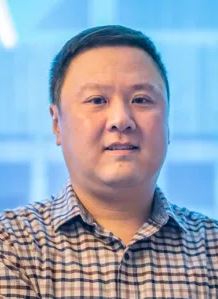NSF CAREER Award Supports Digital Deception Detection

Dr. Shuang Hao, A computer scientist in The University of Texas at Dallas’ Erik Jonsson School of Engineering and Computer Science has received a National Science Foundation (NSF) Faculty Early Career Development Program (CAREER) award to support research to detect online deception.
Dr. Shuang Hao, assistant professor of computer science, will use his grant to research ways to detect deception — fabricated online content generated through artificial intelligence.
NSF CAREER grants are the agency’s most prestigious award for early-career faculty who exemplify the role of teacher-scholar and are likely to become leaders in their fields. Each grant is approximately $500,000 over five years.
“Shuang has done exceptionally well since joining the Department of Computer Science at UTD,” said Dr. Ovidiu Daescu, head of the Department of Computer Science and professor of computer science. “Besides receiving the prestigious NSF CAREER award this year, Shuang also received a best paper award a couple of years ago at one of the top cyber security conferences. His research on the security problems of AI, deep learning and social media systems is embedded into his course lectures, helping to train future cyber security experts.”
Hao’s research focuses on advancing techniques to detect and mitigate unwanted activities and online attacks in large-scale systems thereby improving security and usability of internet services. He uses advanced analytics and machine learning to track and fix malicious content in deep learning systems, social media and emerging network systems.
“Besides receiving the prestigious NSF CAREER award this year, Shuang also received a best paper award a couple of years ago at one of the top cyber security conferences. His research on the security problems of AI, deep learning and social media systems is embedded into his course lectures, helping to train future cyber security experts.”
Dr. Ovidiu Daescu, Head of the Department of Computer Science and Professor of Computer Science
Artificial intelligence techniques have been abused to create convincing images and audio and video hoaxes that have been shared online and used for a variety of purposes, including the creation of fake news, financial fraud and blackmail. Such content is difficult to recognize.
“Cybercriminals increasingly leverage AI-created content to deceive users,” said Hao, who joined UT Dallas in 2017. “Our goal is to develop effective detection approaches to protect internet users and counter potential deception on online services.”
In addition to the CAREER award, Hao received the Internet Engineering Task Force Applied Networking Research Prize, the Institute of Electrical and Electronics Engineers /International Federation for Information Processing Dependable Systems and Networks‘ International Conference Best Paper Award and was a top-10 finalist of the CSAW Best Applied Research Paper Award. At UT Dallas, he teaches several advanced courses that specialize in network security, and he includes doctoral-, master’s- and bachelor’s-level students in his research laboratory.
Hao earned his PhD in computer science at the Georgia Institute of Technology. He was a postdoctoral researcher at the University of California, Santa Barbara prior to joining UT Dallas.
Source | Jonsson School News
ABOUT THE UT DALLAS COMPUTER SCIENCE DEPARTMENT
The UT Dallas Computer Science program is one of the largest Computer Science departments in the United States with over 4,000 bachelors-degree students, more than 1,010 master’s students, 140 Ph.D. students, 52 tenure-track faculty members, and 42 full-time senior lecturers, as of Fall 2021. With the University of Texas at Dallas’ unique history of starting as a graduate institution first, the CS Department is built on a legacy of valuing innovative research and providing advanced training for software engineers and computer scientists.





